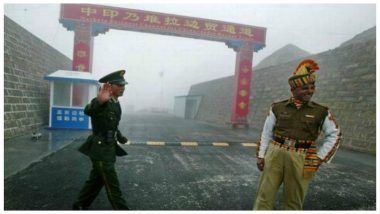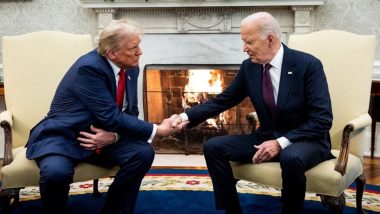Washington, July 01: As its rivalry with the US intensifies and the international environment becomes more hostile, China should improve its relations with its Asian neighbours and India should be its priority, said US-based professor Zhiqun Zhu.
In an opinion piece in Al Jazeera, Zhiqun Zhu, Professor of Political Science and International Relations at Bucknell University, said that India has been cautious not to offend China, even as it beefs up ties with the US. TikTok, UC Browser Among 59 Chinese Apps Banned by Govt of India Amid Row With China, See Full List.
"It serves China's interest to improve relations with its Asian neighbours instead of heavily concentrating on the US. India should be a priority of this new approach," the professor said.
"If Beijing reacts to the border clash as raucously as New Delhi does, it runs the risk of raising animosity between the two countries and pushing India further into the US embrace, giving Washington an edge in boxing in Beijing," he added.
The professor said that in order to avoid creating too many enemies and pushing India closer to the US, China will have to de-escalate tensions with India. "The Chinese leadership may not have a consensus on how to handle the border crisis, but no one wants to be blamed for 'losing' India. It is possible that President Xi Jinping is trying to rein in aggressive impulses of some Chinese diplomats and generals," he further said.
The professor said that China must deal with a nationalistic neighbour--India-- prudently, as calls for boycotting Chinese goods and cancelling contracts with Chinese businesses grow louder in India following Galwan Valley showdown. He further said that China needs to improve its relationship with India because it already has frosty relations with Australia and Japan, faces challenges in the South China Sea, Taiwan and Hong Kong, and is experiencing the lowest point in its relations with the US and Canada.
"As the two largest developing nations, India and China share many interests such as promoting domestic growth, safeguarding regional stability, combating persistent poverty, and dealing with climate change," he noted. "Both also desire to play a more active role in international affairs. Their common interests obviously outweigh their differences. The last thing they need is a war which would doom both their domestic and international ambitions, he added.
To counter the perceived Western bias towards China, Beijing has launched the "Tell the China story" campaign globally. "If India, a fellow developing country in Asia, finds the "China story" unappealing, how can China present it effectively to the world?" said the professor.
"The Chinese have a saying: close neighbours are dearer than distant relatives. Instead of a US-centric foreign policy, China should pivot to Asia now, with India being a critical component of this new diplomatic approach," he added.













 Quickly
Quickly




















